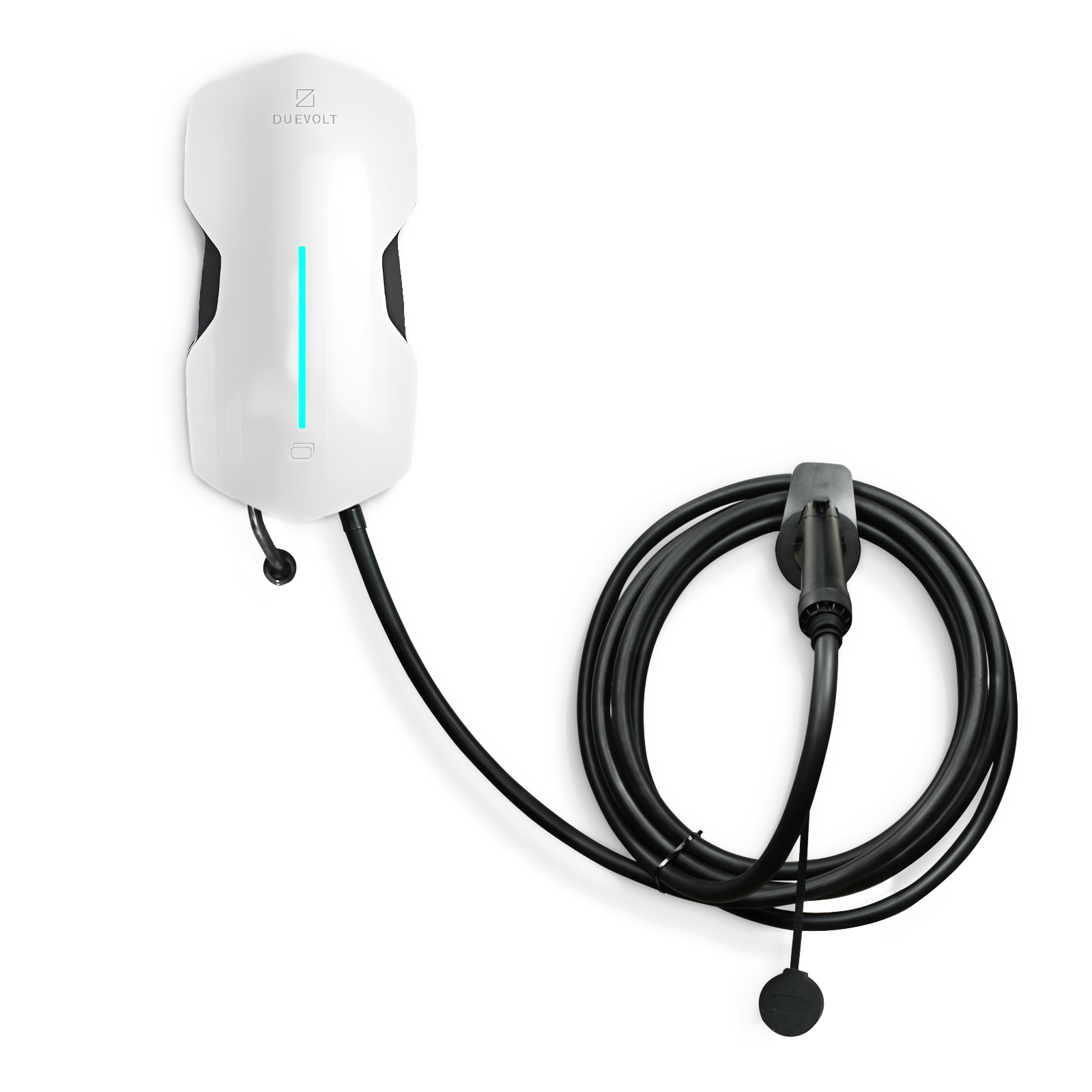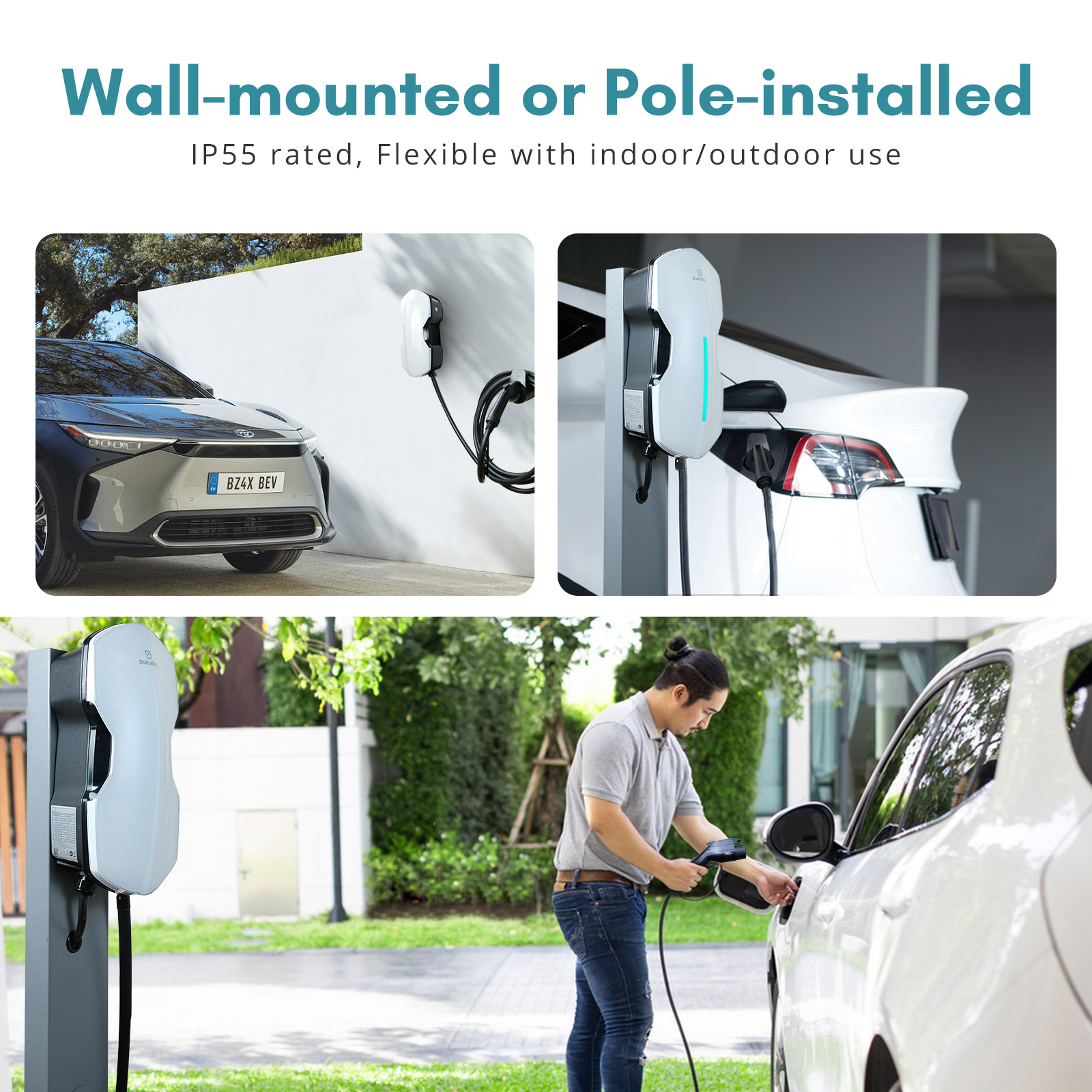Installing a Level 2 EV charger at home can dramatically reduce charging time and improve daily convenience for EV owners. Here’s what to consider when selecting the right charger for your garage or driveway setup.
What is a Level 2 EV Charger?
Level 2 chargers use a 240V power supply to deliver significantly faster charging compared to Level 1 options. Most EVs can be fully charged overnight using a Level 2 unit, making it ideal for home installation. These chargers are typically installed on a dedicated circuit with a high-current outlet or hardwired directly into your electrical panel.
Hardwired vs. Plug-in: Which to Choose?
There are two main installation methods for home EV chargers:
- Plug-in models connect to a 240V outlet, typically a NEMA 14-50, and offer easier installation and portability.
- Hardwired units are directly connected to your panel, often recommended for outdoor use or where local codes require permanent installation.
Learn more about the pros and cons in our article: Hardwired vs. Plug-In EV Chargers
Understanding NEMA 14-50 Outlets
The NEMA 14-50 outlet is one of the most popular options for Level 2 home charging. It delivers 240V power and supports up to 50A circuits, commonly used for RVs and electric ranges. Installing one in your garage can future-proof your EV charging setup.
Explore more: NEMA 14-50 and Other 240V Outlets for EV Charging
J1772 vs. NACS: Connector Compatibility
- J1772 is the standard for most non-Tesla electric vehicles in North America.
- NACS (Tesla-style connector) is now becoming more widely adopted by major brands including Ford, GM, and Rivian.
Make sure to choose a charger that matches your vehicle’s inlet—or one that can work with an adapter.
40 Amp vs. 48 Amp: Power Output Considerations
- 40A chargers are sufficient for most EVs and can deliver up to 9.6 kW of charging power when connected to a 50A circuit.
- 48A chargers offer faster charging speeds (up to 11.5 kW), but require a 60A circuit and may involve additional electrical work.
If your EV supports higher current charging and your panel can accommodate it, a 48A charger may be worth the upgrade.

